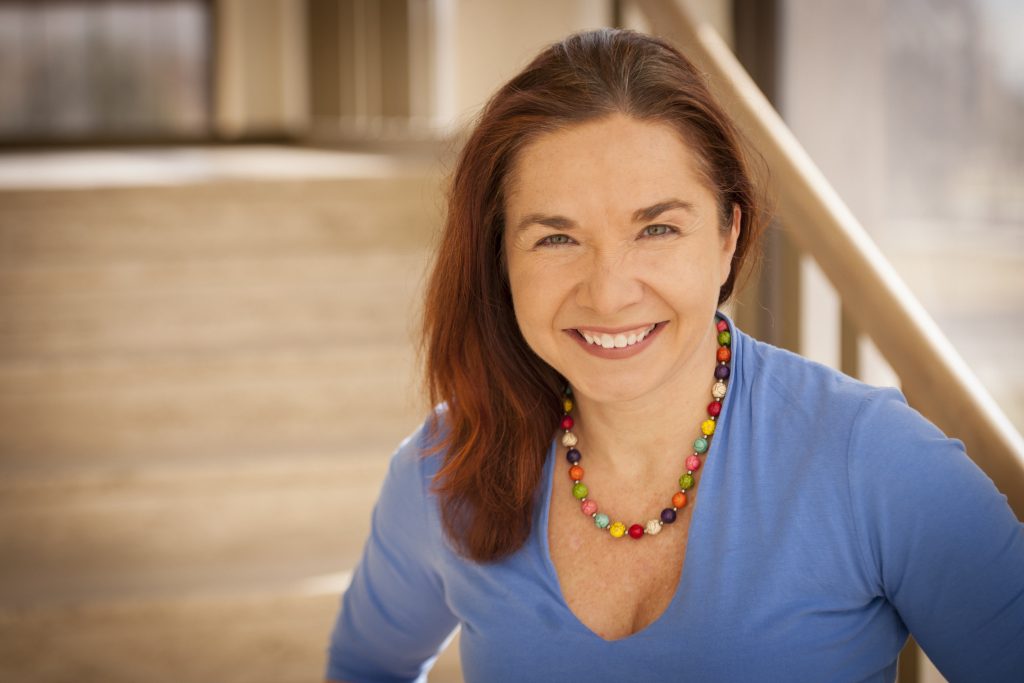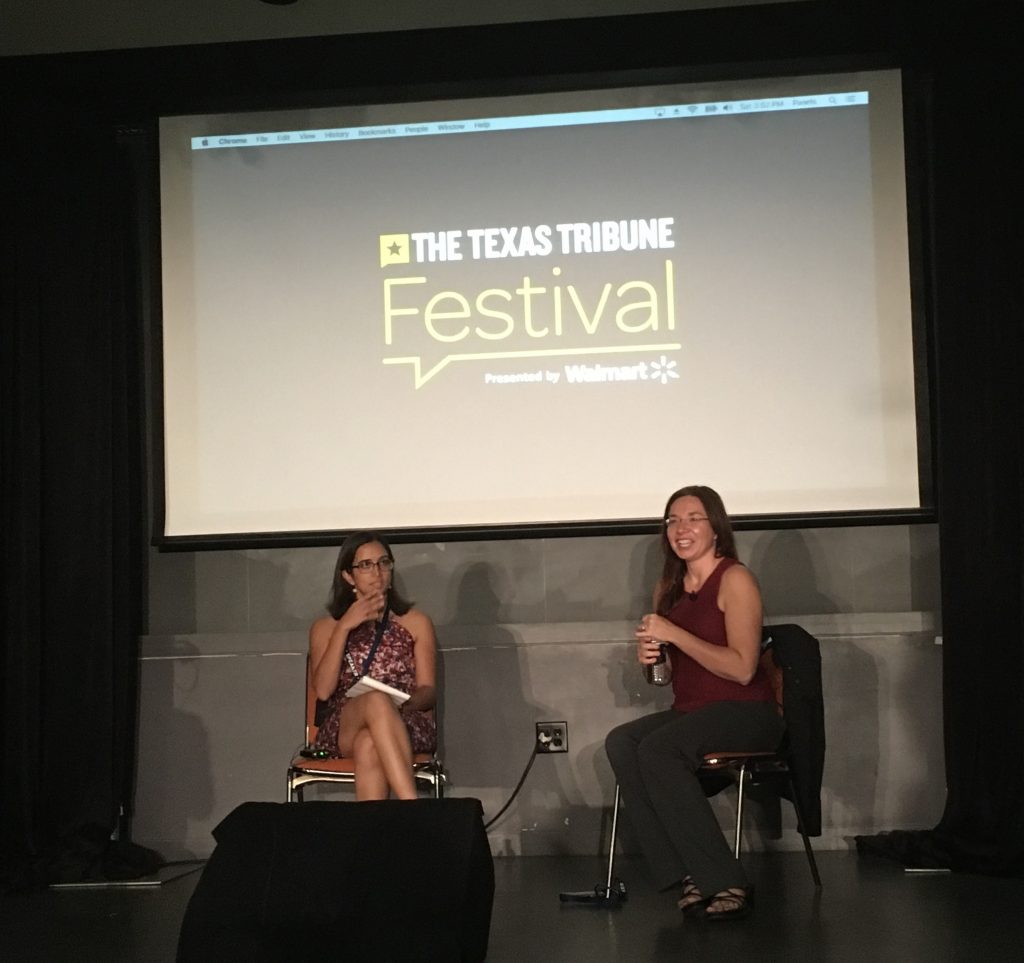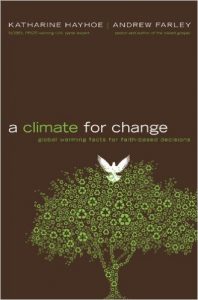Dr. Katherine Hayhoe, one of the foremost experts in the world on climate change, appeared at the Texas Tribune Festival this weekend in a one-on-one interview with Neena Satija, the news organization’s environmental and investigative reporter.

Climate change expert Dr. Katherine Hayhoe will join us at our Climate Change and the Monarch Butterfly Migration Symposium in San Antonio October 21 -Photo by Artie LImmer, Texas Tech University
Since Dr. Hayhoe will be joining us at our Monarch Butterfly and Pollinator Festival October 20 -22 as a speaker at our climate change symposium, I thought I’d sit in on the session to get a preview of what we might hear from her next month. Tickets available here.
Hayhoe did not disappoint. But first, a bit of background.
Born in Ontario, Canada, she “grew up with Monarch butterflies,” she told me after her appearance. She was raised as an evangelical Christian and climate skeptic.
Now, as an atmospheric scientist, Hayhoe serves as an associate professor and director of the Climate Science Center at Texas Tech University with a B.Sc. in Physics from the University of Toronto and an M.S. and Ph.D. in Atmospheric Science from the University of Illinois. She devotes herself to developing and applying climate projections to understand what climate change means for people and the natural environment. As a lead author for the Second and Third U.S. National Climate Assessments, she has conducted climate impact studies for a broad cross-section of organizations, cities and regions, from Boston to Texas to California.
“I am also the founder and CEO of ATMOS Research, where we bridge the gap between scientists and stakeholders to provide relevant, state-of-the-art information on how climate change will affect our lives,” Hayhoe states on her website.
This bridge building becomes most interesting when Hayhoe taps into her identity as an evangelical Christian married to a pastor–not the typical profile of a climate change activist. She and her husband Andrew Farley, a professor of applied linguistics and best-selling author, wrote A Climate for Change: Global Warming Facts for Faith-Based Decisions, a book that untangles the complex science of climate change while tackling long-held misconceptions.
This defying of the stereotype gives Hayhoe a unique ability to talk about climate change in a way people can hear and understand.

Neena Satija interviews Dr. Katherine Hayhoe at the Texas Tribune Festival. Photo by Monika Maeckle
Referring to the “earth’s fever,” on Saturday at Calhoun Hall on the University of Texas at Austin campus, she pointed out how the values that drive people to do things big and small to combat client change are the same values upon which every major religion in the world are founded–taking responsibility, caring about the future our children will face, and caring for the poor, for example.
“Hopelessness as a policy is hopeless,” Hayhoe said. “Hope is what keeps us going as humans.”
She added that the poor and the vulnerable are the human populations most effected by climate change. Native Americans in Alaska and Louisiana have been displaced and are the first climate change refugees “because their land is sinking,” into the rising oceans, she said.

Hayhoe’s book, co authored with her husband Dr. Andrew Farley, unravels misconceptions about climate change. Courtesy photo
But Hayhoe’s primary message was one of hope. She cited the progress and actions cities are taking across the country to fight climate change–planting more trees, reducing pavement, concrete and other impervious cover, creating green roofs to help reduce temperatures in urban heat islands.
She praised British Colombia’s carbon fee dividend program–whereby companies and individuals charge a fee for greenhouse gas emissions, which are then refunded to taxpayers as a dividend. “China’s 2015 coal emissions dropped for the first time. They have more wind and solar than anyone,” she said.
She encouraged those advocating to combat climate change to “leave the science behind” and talk about something that touches people’s hearts.
“To talk to people about climate change, don’t start with the science, talk about something that is personal to them,” said Hayhoe. “We must be able to connect where our heart is, not just where our head is.”
Like what you’re reading? Follow butterfly and native plant news at the Texas Butterfly Ranch. Sign up for email delivery, like us on Facebook, or follow us on Twitter, @monikam.
Related posts:
- Coming soon: Grupo Mexico copper mine in heart of Monarch butterfly roosting sites?
- Scientists try to assess Monarch butterfly mortality after Mexican freeze
- At least 1.5 million Monarch butterflies perish in freak Mexican snowstorm
- Good news! Monarch butterfly population triples
- Thanks, climate change! 9.5-inch Llano River rain dump exemplifies extreme weathe
- Resilience Required: Climate Change Turns up the Heat in the Butterfly Garden
- Mighty Monarch butterflies brave south winds, Hurricane Patricia to arrive in Mexico
- Will the Monarch Migration Become Extinct?


Refreshing.